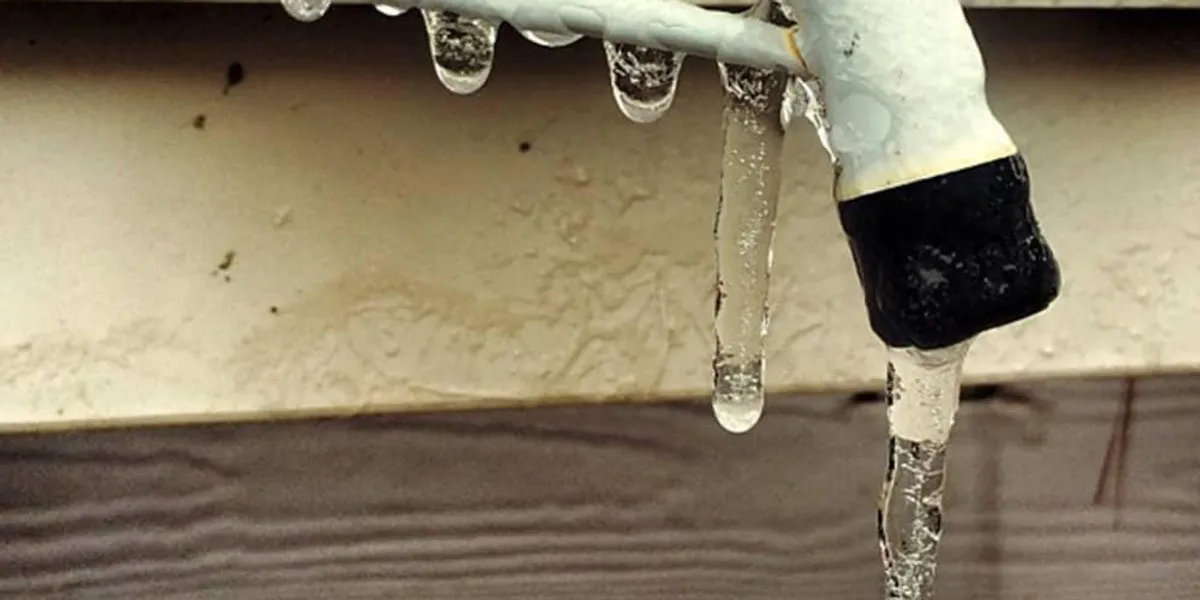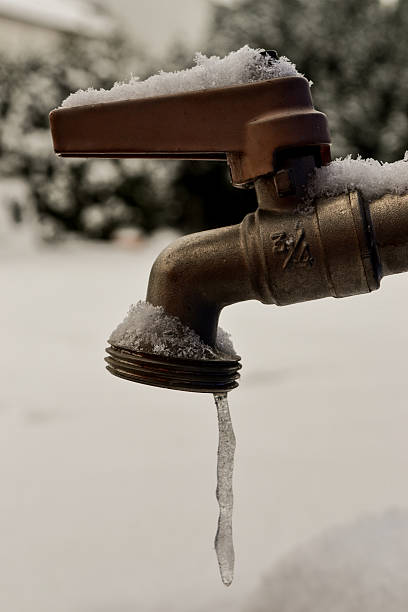Shielding Pipes from Cold Weather Issues: Essential Strategies
Shielding Pipes from Cold Weather Issues: Essential Strategies
Blog Article
They are making a number of great pointers relating to Preventing and dealing with frozen pipes as a whole in this content down the page.

Cold weather can ruin your pipes, specifically by freezing pipelines. Right here's exactly how to prevent it from happening and what to do if it does.
Introduction
As temperature levels decrease, the threat of frozen pipes rises, potentially bring about costly repair work and water damage. Comprehending how to prevent icy pipelines is essential for home owners in chilly climates.
Prevention Tips
Insulating susceptible pipelines
Cover pipelines in insulation sleeves or utilize warm tape to safeguard them from freezing temperatures. Concentrate on pipes in unheated or external areas of the home.
Home heating methods
Keep interior rooms properly heated, especially areas with plumbing. Open cupboard doors to enable warm air to distribute around pipelines under sinks.
Exactly how to recognize frozen pipes
Try to find decreased water circulation from taps, unusual smells or noises from pipelines, and noticeable frost on subjected pipelines.
Long-Term Solutions
Structural changes
Consider rerouting pipelines far from exterior wall surfaces or unheated areas. Add extra insulation to attics, basements, and crawl spaces.
Upgrading insulation
Buy premium insulation for pipelines, attics, and wall surfaces. Correct insulation helps maintain regular temperature levels and lowers the risk of icy pipelines.
Shielding Exterior Pipes
Garden pipes and exterior faucets
Disconnect and drain pipes garden tubes prior to winter months. Set up frost-proof spigots or cover outdoor taps with shielded caps.
Recognizing Icy Pipes
What triggers pipelines to ice up?
Pipelines ice up when subjected to temperature levels below 32 ° F (0 ° C) for expanded periods. As water inside the pipelines freezes, it broadens, putting pressure on the pipe walls and possibly creating them to rupture.
Threats and problems
Icy pipes can cause supply of water interruptions, property damage, and pricey repair services. Burst pipes can flood homes and create substantial structural damage.
Indications of Frozen Pipes
Identifying frozen pipes early can stop them from bursting.
What to Do If Your Pipelines Freeze
Immediate activities to take
If you presume frozen pipes, maintain taps open to eliminate pressure as the ice melts. Make use of a hairdryer or towels taken in hot water to thaw pipes slowly.
Final thought
Protecting against frozen pipes requires aggressive procedures and fast reactions. By understanding the reasons, signs, and preventive measures, homeowners can shield their pipes during winter.
Helpful Tips to Prevent Frozen Pipes this Winter
UNDERSTANDING THE BASICS: WHY PIPES FREEZE AND WHY IT’S A PROBLEM
Water freezing inside pipes is common during the winter months, but understanding why pipes freeze, and the potential problems it can cause is crucial in preventing such incidents. This section will delve into the basics of why pipes freeze and the associated problems that may arise.
THE SCIENCE BEHIND FROZEN PIPES
When water reaches freezing temperatures, it undergoes a physical transformation and solidifies into ice. This expansion of water as it freezes is the primary reason pipes can burst. As the water inside the pipe freezes, it expands, creating immense pressure on the walls. If the pressure becomes too great, the pipe can crack or rupture, leading to leaks and water damage.
FACTORS THAT CONTRIBUTE TO PIPE FREEZING
Low Temperatures: Extremely cold weather, especially below freezing, increases the risk of pipes freezing. Uninsulated or Poorly Insulated Pipes: Pipes located in unheated areas, such as basements, crawl spaces, or attics, are more prone to freezing. Insufficient insulation or lack of insulation altogether exacerbates the problem. Exterior Wall Exposure: Pipes running along exterior walls are susceptible to freezing as they encounter colder temperatures outside. Lack of Heating or Temperature Regulation: Inadequate heating or inconsistent temperature control in your home can contribute to frozen pipes. PROBLEMS CAUSED BY FROZEN PIPES
- Pipe Bursting: As mentioned earlier, the expansion of water as it freezes can cause pipes to burst, resulting in significant water damage.
- Water Damage: When pipes burst, it can lead to flooding and water damage to your property, including walls, ceilings, flooring, and personal belongings.
- Structural Damage: Prolonged exposure to water from burst pipes can compromise the structural integrity of your home, leading to costly repairs.
- Mold and Mildew Growth: Excess moisture from water damage can create a favorable environment for mold and mildew growth, posing health risks to occupants.
- Disrupted Water Supply: Frozen pipes can also result in a complete or partial loss of water supply until the issue is resolved.
WHY CERTAIN PIPES ARE MORE PRONE TO FREEZING
- Location: Pipes located in unheated or poorly insulated areas, such as basements, crawl spaces, attics, or exterior walls, are at higher risk of freezing.
- Exterior Pipes: Outdoor pipes, such as those used for irrigation or exposed plumbing, are particularly vulnerable to freezing as they are directly exposed to the elements.
- Supply Lines: Pipes that carry water from the main water supply into your home, including the main water line, are critical to protect as freezing in these lines can affect your entire plumbing system.
- Underground Pipes: Pipes buried underground, such as those connected to sprinkler systems or outdoor faucets, can be susceptible to freezing if not properly insulated.
https://busybusy.com/blog/helpful-tips-to-prevent-frozen-pipes-this-winter/

We were guided to that editorial on Prevent Frozen Pipes from a pal on our other web blog. For those who liked our blog posting plz don't forget to share it. I am grateful for your time. Revisit us soon.
Quote & Schedule Report this page